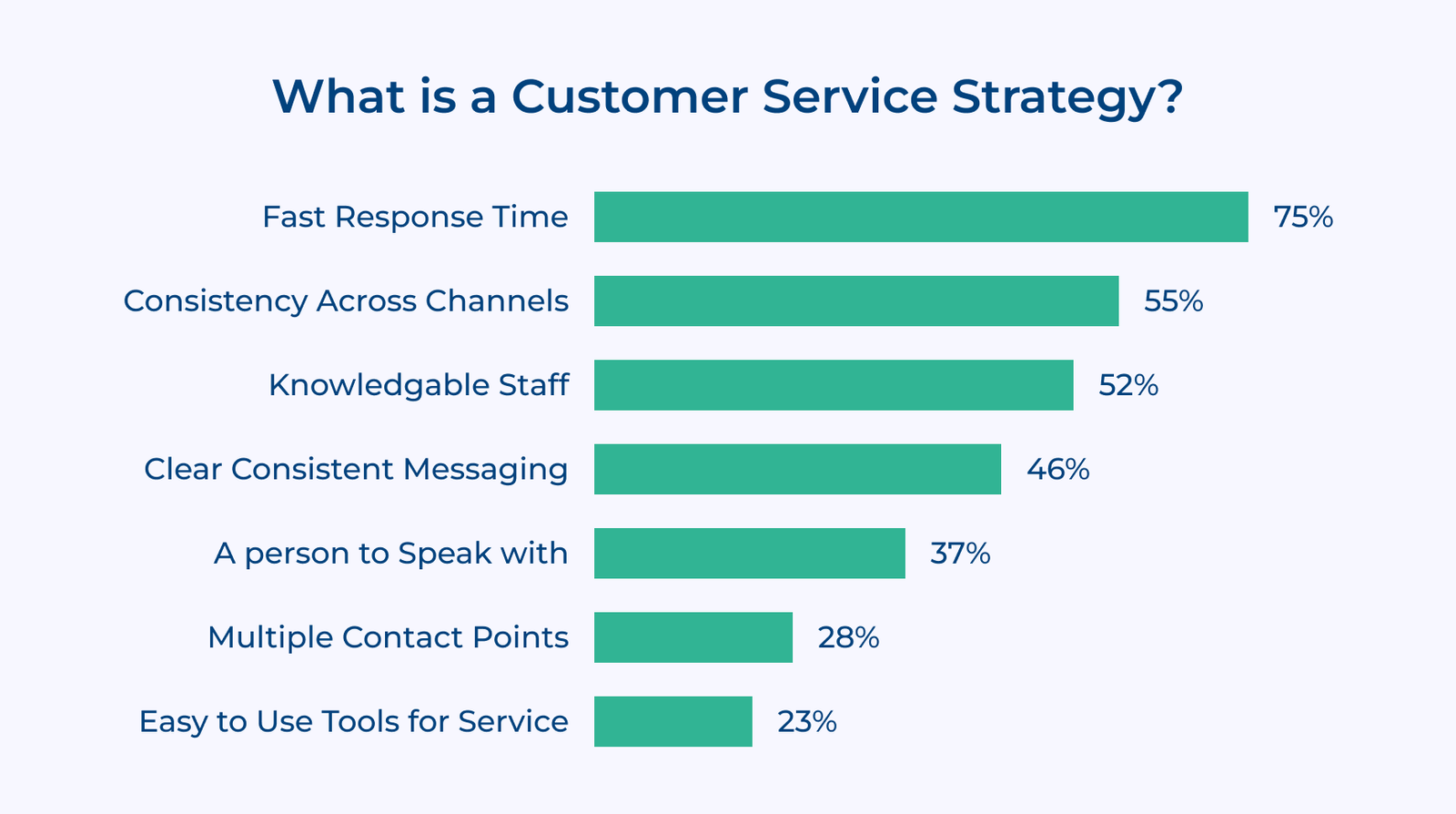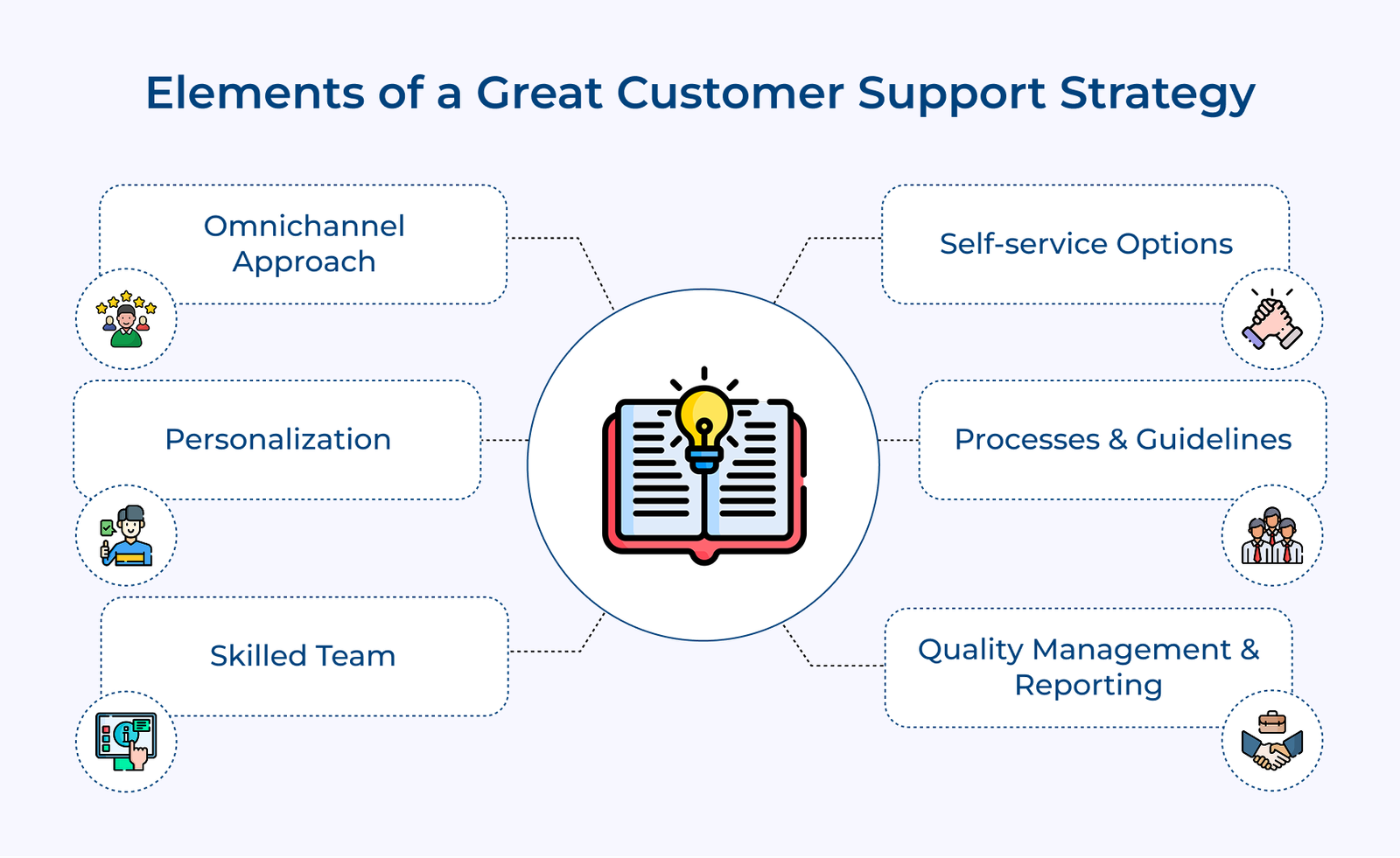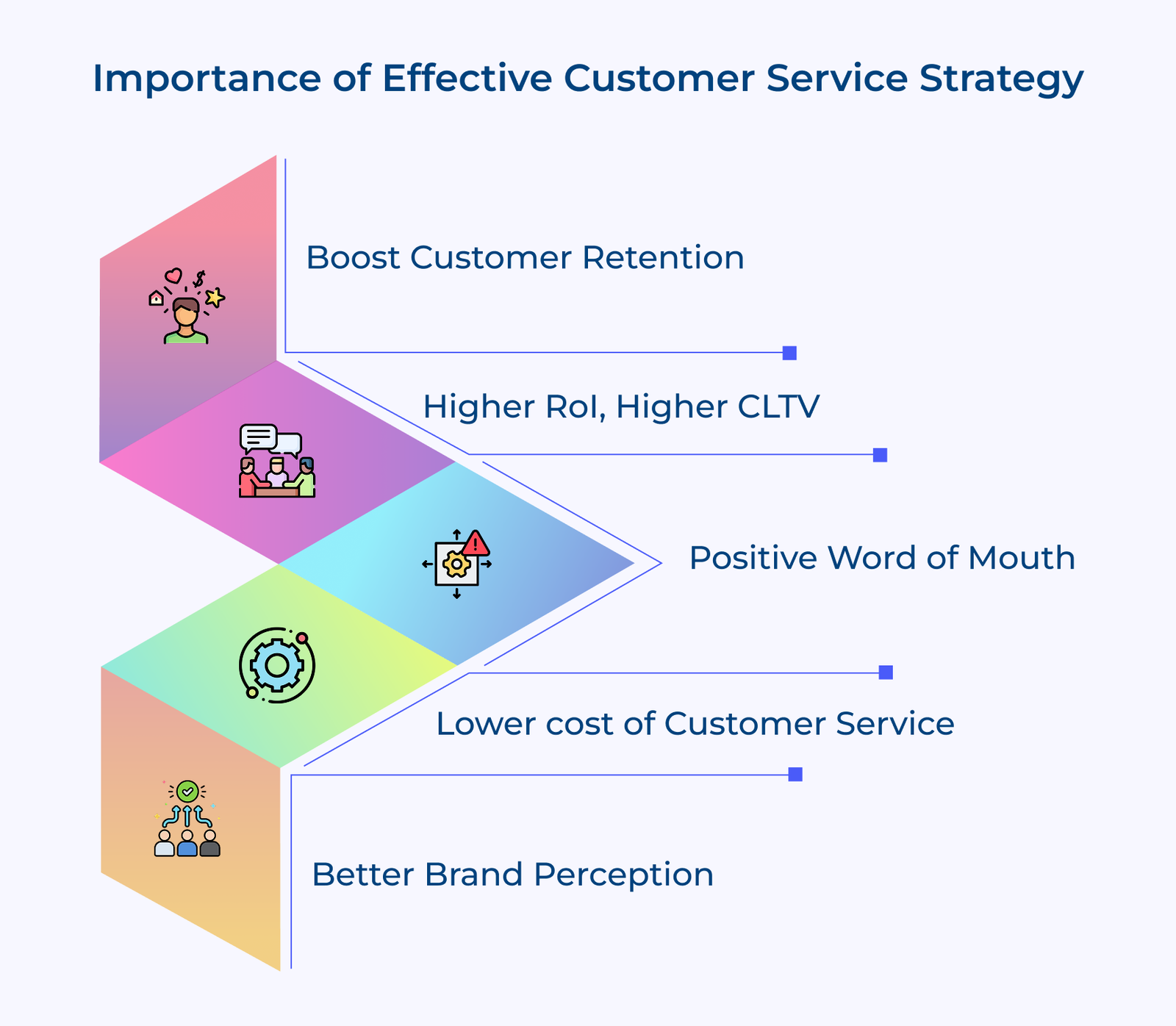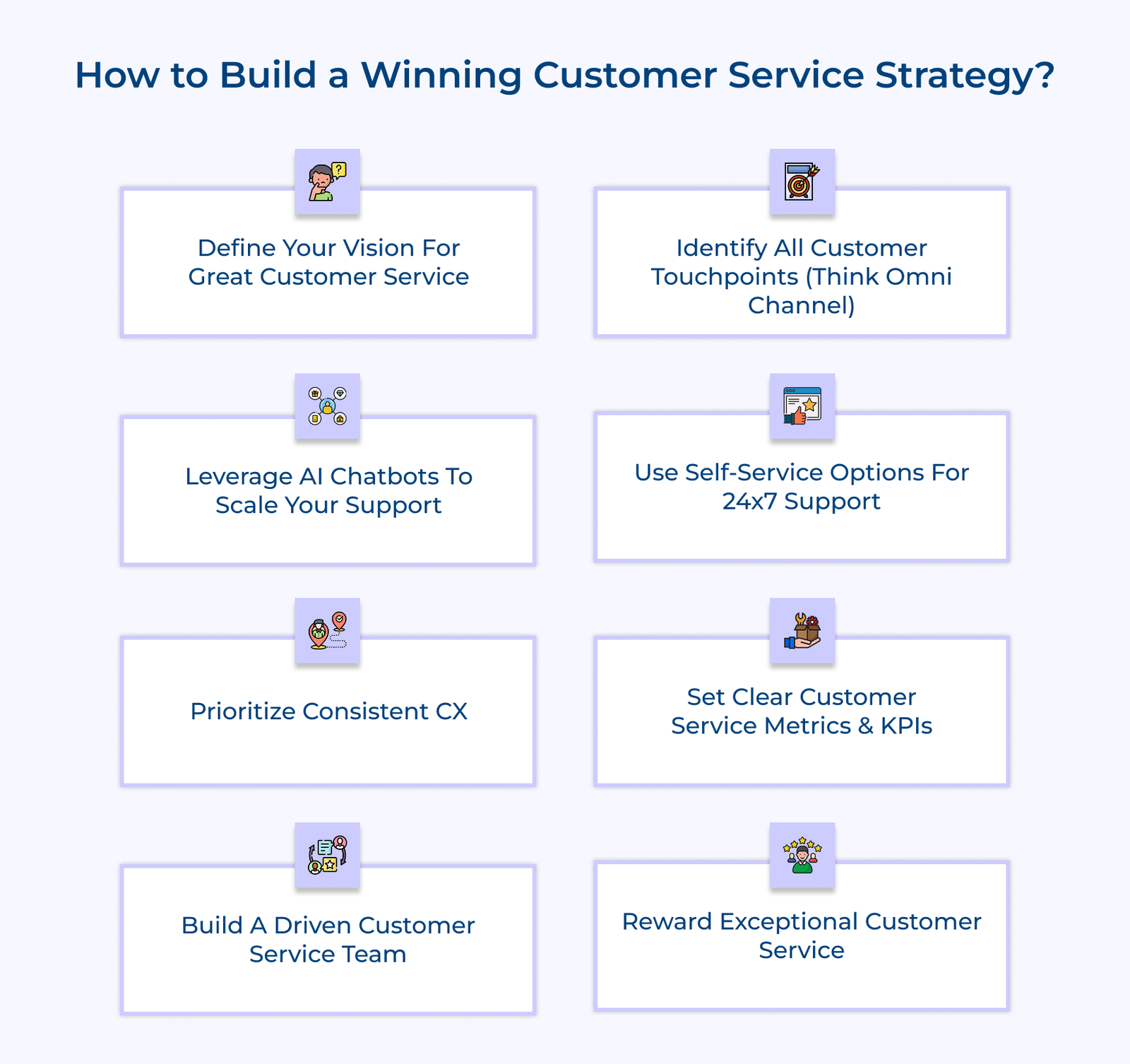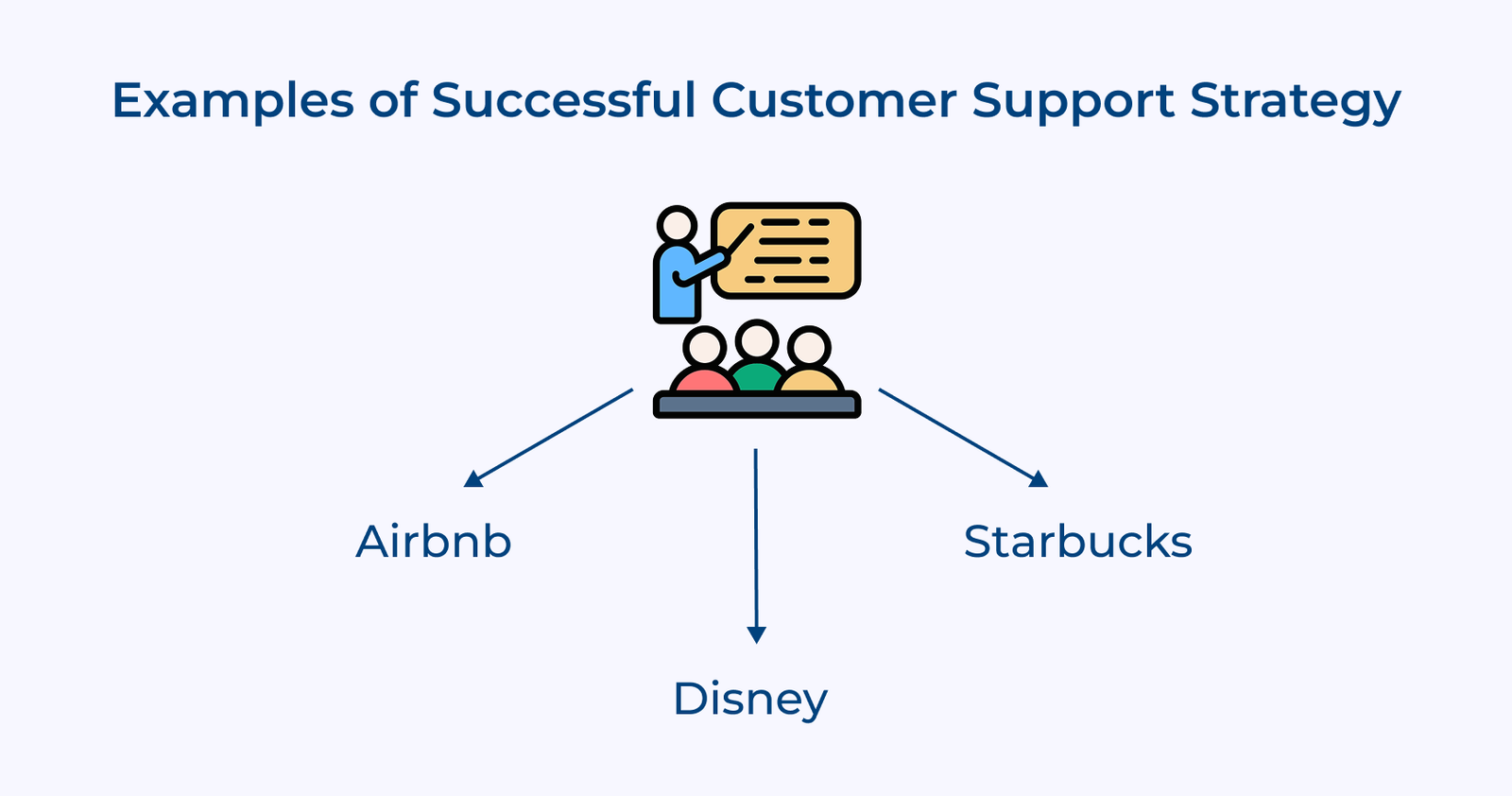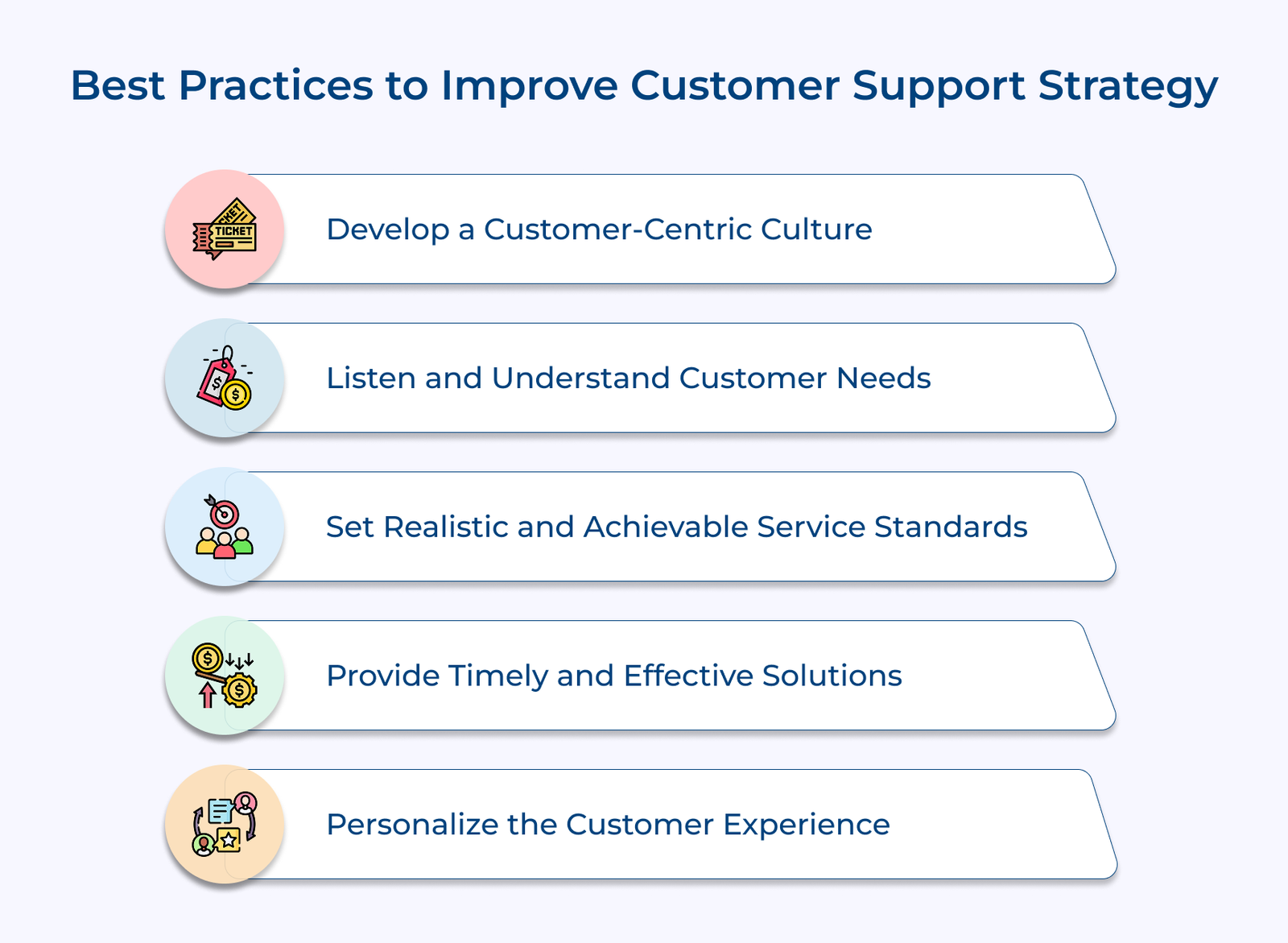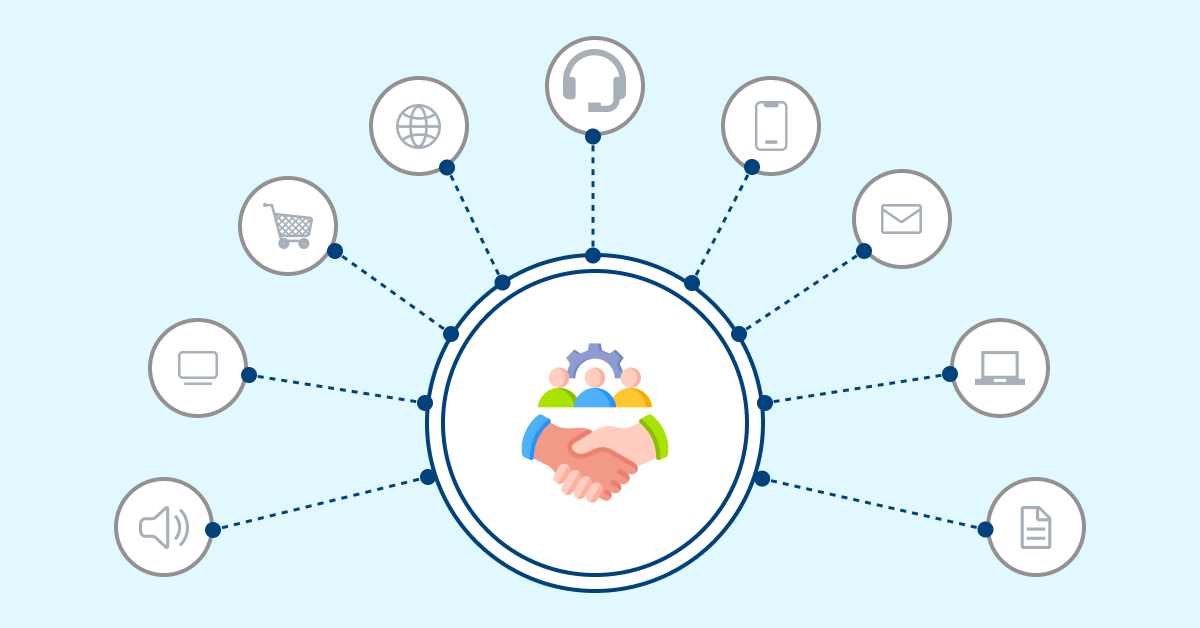1. Define Your Vision for Great Customer Service
The most important part of crafting a powerful customer service strategy is defining your vision of great customer service. It helps you articulate the underlying principles that should be adhered to throughout your entire organization when approaching customers and resolving complaints. Developing the vision requires creating an understanding of the company’s culture, values, and goals.
Best Practices:
- Customers should feel like they have access to clear communication and know exactly who they can contact if they need help or advice.
- Every mistake should be apologized for without fail but in addition, solutions must also be proposed aiming at prevention in the future.
- Ensure that your customer service team receives consistent training and possesses the empowerment to make decisions that align with the vision of great customer service.
2. Identify All Customer Touchpoints (Think Omni Channel)
Customer touchpoints arise during each interaction between the customer and the organization providing services. From social media interactions and online chat support to over-the-phone assistance—all come under potential touch points with customers.
Identifying such types of channels will ensure that you are able to provide stellar support across multiple platforms and thus retain customers more easily. Faster problem resolution times and easier access to help prevent your existing customers from leaving your brand.
Best Practices:
- Make sure your customers don’t have difficulty finding out how they can get in touch with you – prominently display contact channels on your website or app.
- Regularly monitor each channel by using tools that allow you to identify user segments experiencing certain problems more often than others so you can address them quickly before they affect other users
- Aim for seamless integration and consistency across all customer touchpoints. It ensures a uniform experience regardless of the channel customers choose to interact with.
3. Leverage AI Chatbots to Scale Your Support
AI chatbots are quickly becoming the go-to solution for businesses looking to scale their customer service operations. AI chatbots can provide automated answers to many common customer inquiries, freeing up time and resources that can be used elsewhere. Using chatbots in businesses can save up to 2.5 billion hours as customer support representatives handle 17 interactions every day on average.
Best practices:
- Implement an AI chatbot that is highly customizable so that you can tailor it to your specific needs and customers
- Make sure your chatbot has backup human support if it cannot find an answer. The customers will continue to have a positive experience regardless of the complexity of their inquiry
- Ensure that the chatbot remains updated with the latest features. Such automation can help businesses to remain ahead of their competitors.
4. Use Self-Service Options for 24×7 Support
Self-service options allow businesses to give customers access to support 24/7 without having staff available at all times. The approach allows customers to find answers quickly and easily as well as provides them with information when they need it most. Self-service platforms can lead to higher customer retention rates and increased profits ranging from 25% to 95%.
Best practices:
- Developing an intuitive knowledge base where customers can browse for frequently asked questions, product information, etc.
- Using social media channels such as Facebook or Twitter where customers can ask questions outside traditional business hours
- Integrating automated conversations into your website so customers can get quick answers without leaving their cart or product page.
5. Prioritize Consistent CX
One of the most important aspects of building a powerful customer service strategy is to ensure that you consistently provide excellent experiences for customers whenever they interact with your company. The approach means taking proactive steps to make sure that all members of the team are up-to-date on procedures, processes and policies as well as establishing guidelines for how customers should be treated.
Best practices:
- Invest in ongoing training programs to keep your customer service team well-versed. It ensures that they are equipped to handle diverse customer inquiries and situations with confidence.
- Promote a customer-centric culture across the company by instilling the importance of excellent customer service at all levels. Encourage cross-functional collaboration where departments work together to improve the overall customer experience.
- Establish a feedback loop to gather insights from both customers and frontline employees. Regularly solicit feedback about customer interactions, challenges and suggestions for improvement.
6. Set Clear Customer Service Metrics & KPIs
Customer service metrics are essential for continuing to improve your customer service practices. It is crucial to clearly define what success looks like for each level of the organization so everyone is working toward the same goal. The process will entail setting specific goals that can then be measured with quantitative indicators such as response rates, resolution times, or feedback from customers (i.e., Net Promoter Score)
Best practices:
- Ensure that your chosen customer service metrics and KPIs are directly aligned with your overall organizational goals. When every level of the organization is working towards the same goal, it establishes a sense of shared purpose and direction.
- Select a mix of quantitative and qualitative metrics to gain a comprehensive understanding of your customer service performance. While quantitative indicators offer tangible data, qualitative feedback from customers provides valuable insights into their experiences.
- Establish a practice of regular review around these metrics and KPIs. Organize dedicated workshops or meetings where all relevant stakeholders come together to discuss current performance.
7. Build a Driven Customer Service Team
A powerful customer service strategy begins with finding and hiring the best personnel for your customer service team. When choosing applicants focus on those with strong communication skills, an understanding of your company’s products or services and a demonstrated ability to put customers first. Once hired, make sure the customer service team has the resources they need to support customers effectively.
Best practices:
- Invest in ongoing training for your customer service team to keep their skills sharp and updated. Equip them with product knowledge, communication techniques and conflict-resolution strategies.
- Facilitate an environment where your customer service team feels empowered to make decisions that benefit customers. Provide guidelines rather than rigid scripts, allowing them to adapt their responses to individual situations.
- Establish feedback mechanisms that allow your customer service team to share insights, challenges and suggestions for improvement.
8. Reward Exceptional Customer Service
The most successful businesses recognize and reward exceptional customer service performance within their teams; it reinforces positive behaviors which ultimately lead to a better experience for customers overall. Developing rewards can range from public acknowledgments like awards or promotions, specialized bonuses such as gift cards or bonus days off, and more tangible benefits like increasing staff salaries.
Best Practices:
- Establish clear and transparent criteria for what constitutes exceptional customer service. It helps in ensuring that recognition is consistent and fair across the board.
- Ensure that recognition is timely and personalized. Celebrate exceptional customer service achievements promptly after they occur to make the recognition more meaningful.
- Encourage a culture of peer-to-peer recognition. While managerial recognition is important, allowing colleagues to acknowledge each other’s exceptional customer service promotes a supportive environment.
Examples of Successful Customer Support Strategy
Explore the real-world examples of successful strategies that can transform your approach and boost your business outcomes.






